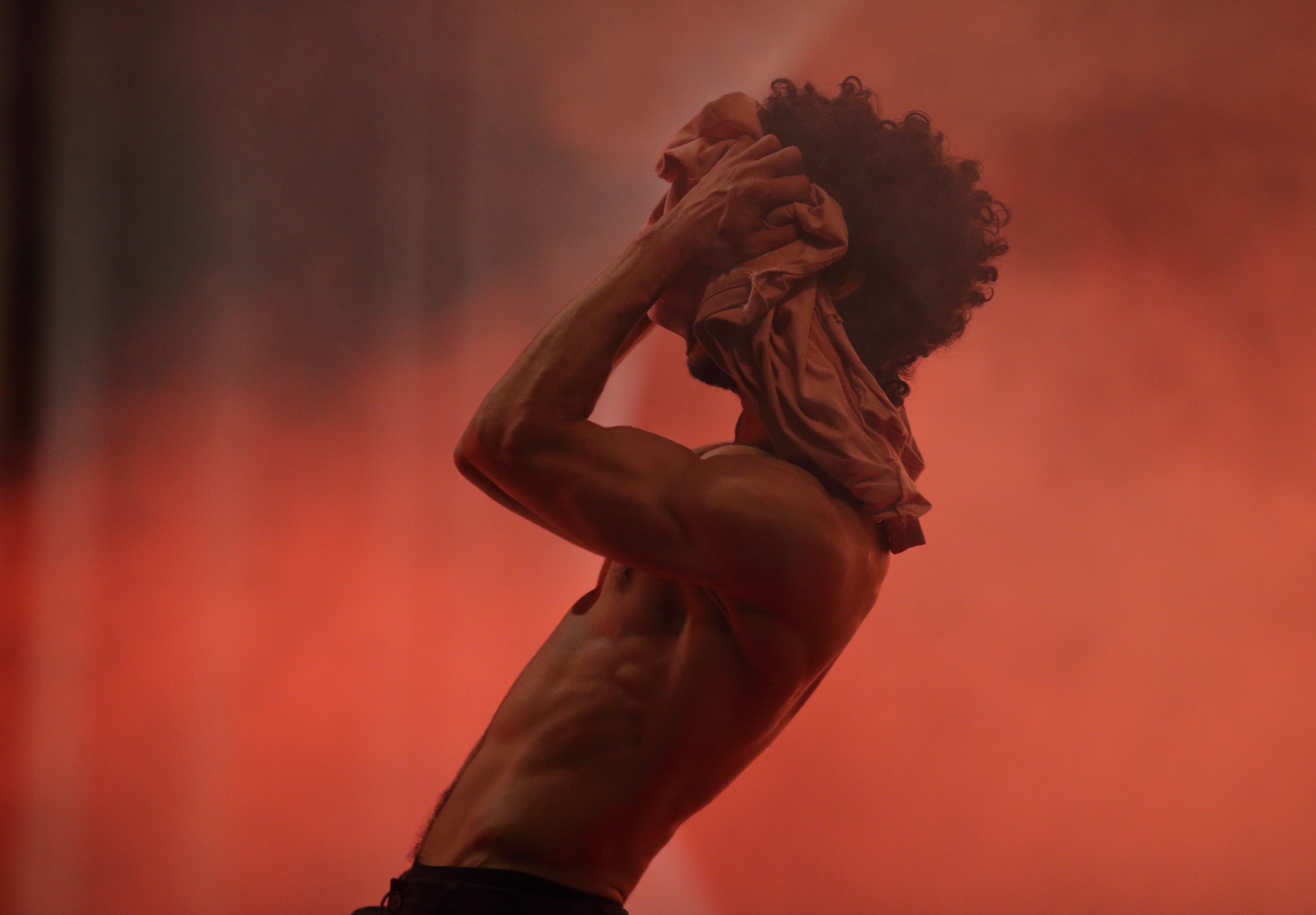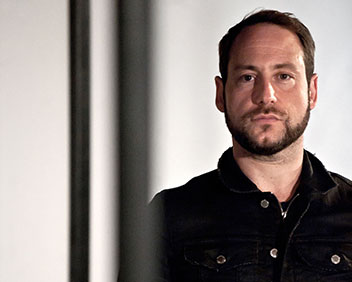Why a performance of ‘mahraganat’?
First, I think it is important to say that I have lived between Paris and Cairo for many years; and I saw this musical wave appear, flooding the Egyptian musical scene. Egyptians sing and dance everywhere, in a discreet and intimate way but it is an essential part of their culture. And there, I watched with much curiosity the development of this wild, instinctive music and dance. It might appear less “highbrow” than other forms, but it is still fully saturated, as if every space, every instant should be filled, as if time is running out.
It carries the audacity of youth.
It took me years to dare to explore it. I wanted this new voice to find its maturity first, because as a foreigner, I had no right to touch it, or divert it from its raison d'être.
Today, I tackle it with just as much respect and ignorance but with the conviction that this new wave is contemporary, that it carries a new language. A shout.
"Itmahrag", what does it mean?
Itmahrag is a new term I invented. From the word Mahraganat, I coined a verb that does not exist: "be festive". Itmahrag is like an injunction to dance, to sing.
I really like the idea that all of this is just an invitation to be, to celebrate. A celebration like an enchantment.
Itmahrag is therefore not only the creation of a show. What is its process, its temporality, how did you think of the implementation of this project between Egypt and France?
Itmahrag is a long-term adventure that brings together young non-professional artists; musicians and dancers, a new local organization in Alexandria; B’sarya for Arts, and Compagnie Olivier Dubois (COD).
The creation of the project will take more than a year because the main challenge is to make Itmahrag a production that provides ongoing financial support to all partners involved.
The collaboration between our two teams, B’sarya in Egypt and COD in France, compelled us to invent a new model of creation; a hybrid production model that fits the economic, social, and human realities of our two organizations. This new language thus allows each of our teams to put their knowledge to good use and to develop new ways of working, adapted to the needs of the creation process.
All in all, a team of more than 20 people is involved in the creation of Itmahrag, for a whole year.
This is a real challenge, no doubt, but in my opinion, it could have not been done otherwise.
This shared experience allows us to grow both as artists and organizations.
In order not to be a maker of a dream that only lasts for a night!
Who are those performers, and how did you work with them and with Francois Caffenne?
The artistic team is made up of 7 performers: 3 musicians and 4 dancers. Most of these young performers have received little or no professional training prior to the project. They are completely self-taught, just like François Caffenne and me!
For the music production, the health situation forced us to start with online sessions.
And there lies the strength of self-taught people: self-reliance, boldness, and resourcefulness. Very quickly, we managed to work together in a new way.
The ways of creation remained the same. Research and first drafts. Then we destroyed everything, removed it out of the way in order to get lost. Because I believe that it is essential to get lost hoping to find a treasure!!!
The Egyptian musicians’ syndicate has announced that it wants to ban mahraganat, what does that reflect?
The Mahraganat, like any new artistic wave, provokes a certain amount of contempt from the more established ones. This music has recently been banned in Egypt. I am an artist and therefore carry no political message. I do not comment on social affairs. I just try to respond to my desires, my troubles and from them, I attempt to develop emotions. These emotions, I am sure, allow everyone to experience their own perception of the world. Today, I only know that I love to listen to and see these young people creating their future. And I like the idea of i nitiating it because this is where we talk about tomorrow.


